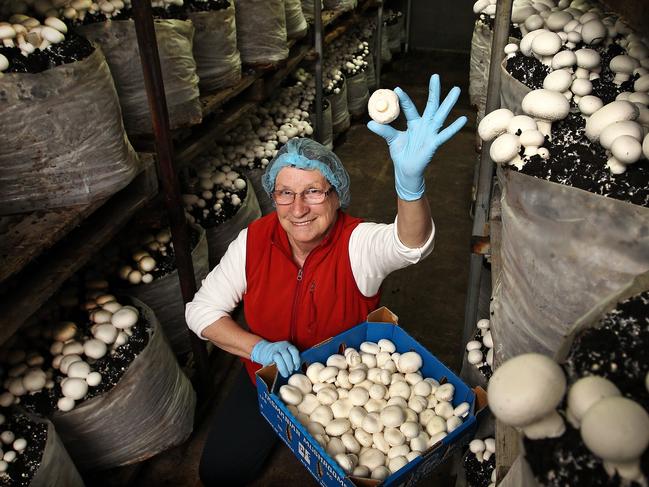Costa Group says it has been a hard year for the mushroom market as it prepares to close Tasmanian plant
A fruit and vegetable giant is set to close its Tasmanian mushroom farm, leaving dozens of staff looking for work.
Tasmania
Don't miss out on the headlines from Tasmania. Followed categories will be added to My News.
A MUSHROOM farm in Tasmania’s North-West is set to close in 10 days leaving 56 workers out of work.
The Costa Group said its Spreyton mushroom facility used outdated technology and would be closed after a challenging year for the company.
Costa Group corporate affairs manager Michael Toby said the 45-year-old farm, which produces about 19 tonnes of mushrooms each week, would close on November 8.
Across Australia, the company grows about 500 tonnes of mushrooms a week
“It has been a very challenging year for our business in general but especially in the mushroom category,” Mr Toby said.
“We have been looking at the viability of our sites and Spreyton is quite an old farm and uses outdated growing technology.”
The fruit and vegetable giant is looking to raise $176 million from investors to pay down debt as it battles drought, high water prices and smaller harvests.
In a statement to the ASX on Monday, Costa said it would pause its 10ha glasshouse expansion at Guyra in NSW due to water security concerns and accelerate the closure of its older mushroom operations both here and in Queensland.

Costa has substantial berry plantings in Tasmania’s North-West – behind Penguin and in East Devonport – and Mr Toby said displaced mushroom workers would be offered work in the berry sector.
Recent figures show the Tasmanian berry industry has a farmgate value of $99 million, taking over from apples and cherries as the state’s biggest fruit crop with a growing appetite over the past decade spurring massive growth.
Costa bought the Spreyton mushroom farm in 2013 and closed its Huon Valley operations the next year saying it would concentrate on expanding in the North-West.
There are two forest mushroom growers in Tasmania’s south – one at Cygnet and another at Woodbridge.
Mr Toby said the Tasmanian Government’s Skills Response Unit would visit the Spreyton site to talk to workers about their options.
“It is perplexing why the bottom has dropped out of the mushroom market, we have not had a year like it,” Mr Toby said.
“Demand generally goes up in winter but that was not the case this year.”
Mushrooms grown at Spreyton are sold in Tasmania at Woolworths and IGA supermarkets and local greengrocers.
The company has another mushroom growing facility in Adelaide.
In 2017, the South Australian Government contributed $1.8 million towards a $60 million expansion of that facility.


